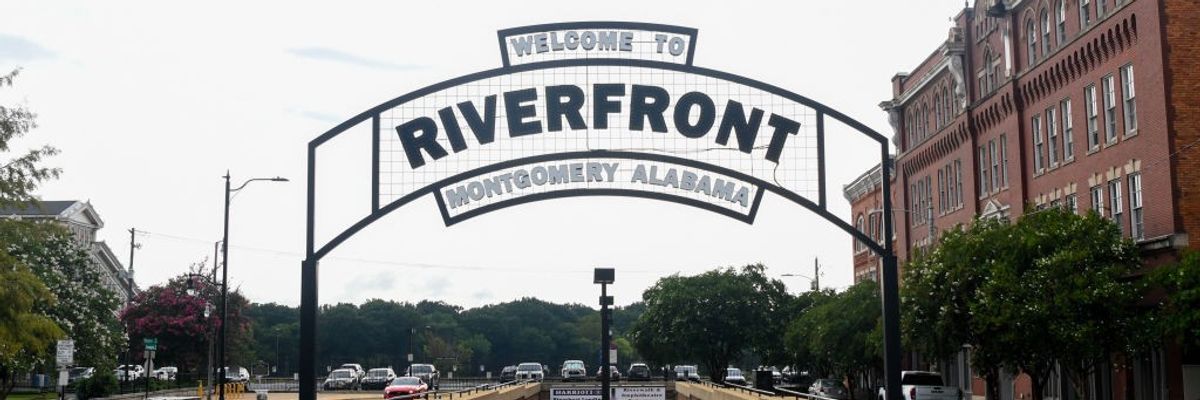Residents of Montgomery, Alabama, are still reeling after a brawl in a local riverfront park several weeks ago that captured national headlines.
The racial overtones of the incident cannot be ignored, and yet the response to this violent clash gives me hope that Montgomery, a city infamous for its civil rights history, is making progress towards racial and economic justice.
What exactly happened? Increasingly, video is the most effective eyewitness and once again, it documented what occurred.
While many have felt as hopeless about Alabama’s disempowered workforce as they have about the state’s race relations, we’re seeing progress on that front as well.
A small pontoon boat was situated at a place reserved for a larger riverboat offering cruises with nearly 300 guests aboard.
The captain had tried for nearly an hour, with a megaphone, to get the smaller boat to move to let the riverboat dock. The requests were met by the white occupants of the boat with obscene gestures and other aggressive acts.
Damien Pickett, the Black co-captain of the riverboat, approached the pontoon to make a personal request for them to move to allow the riverboat to dock. He was then viciously attacked by the pontoon’s occupants.
Both Black and white bystanders tried to help him, openly acknowledging that he was blameless and merely trying to do his job. As tensions escalated, however, a full-scale brawl broke out.
For some, the violence immediately evoked memories of the city’s ugly racist history. After all, Montgomery was one of the most prolific slave-trading cities in the country.
And there is painful irony in the fact that the fight occurred at the same dock where enslaved Americans arrived by steamboat to be sold in the center of town.
But here is my takeaway: Montgomery is moving beyond its tragic past to emerge as a city with forward-looking governance more equitably reflecting the makeup of its population.
One sign of this progress: the recent election of Montgomery Mayor Steven Reed, the first Black mayor of this majority-Black city.
My union, the Communications Workers of America, supported Reed’s campaign and look forward to working with him to advance the intertwined goals of civil rights and economic justice.
Also positive is the fact that so many looked beyond race during the riverfront incident to come to the aid of the Black co-captain as a man unfairly attacked just for doing his job.
And all indications are that the Montgomery Police Department, once justifiably feared by civil rights activists, is doing its job too, acting fairly and impartially to hold those who escalated to violence accountable.
And while many have felt as hopeless about Alabama’s disempowered workforce as they have about the state’s race relations, we’re seeing progress on that front as well.
Recently, a group of AT&T Mobility workers at In Home Expert hubs in the Alabama cities of Huntsville, Birmingham, and Mobile joined CWA because, as one member said, “We deserve respect and dignity on the job, and a union contract protects the rights of all workers.”
Respect and dignity. That’s what it’s all about.
When Captain Pickett approached the pontoon boat docked in Montgomery, he deserved respect, not assault.
Thanks to the hard work and sacrifice of generations of civil rights leaders, bystanders, elected officials, and law enforcement recognize that, and the Montgomery Riverfront Brawl has become a powerful symbol of resistance and change.
